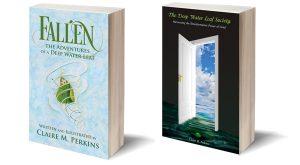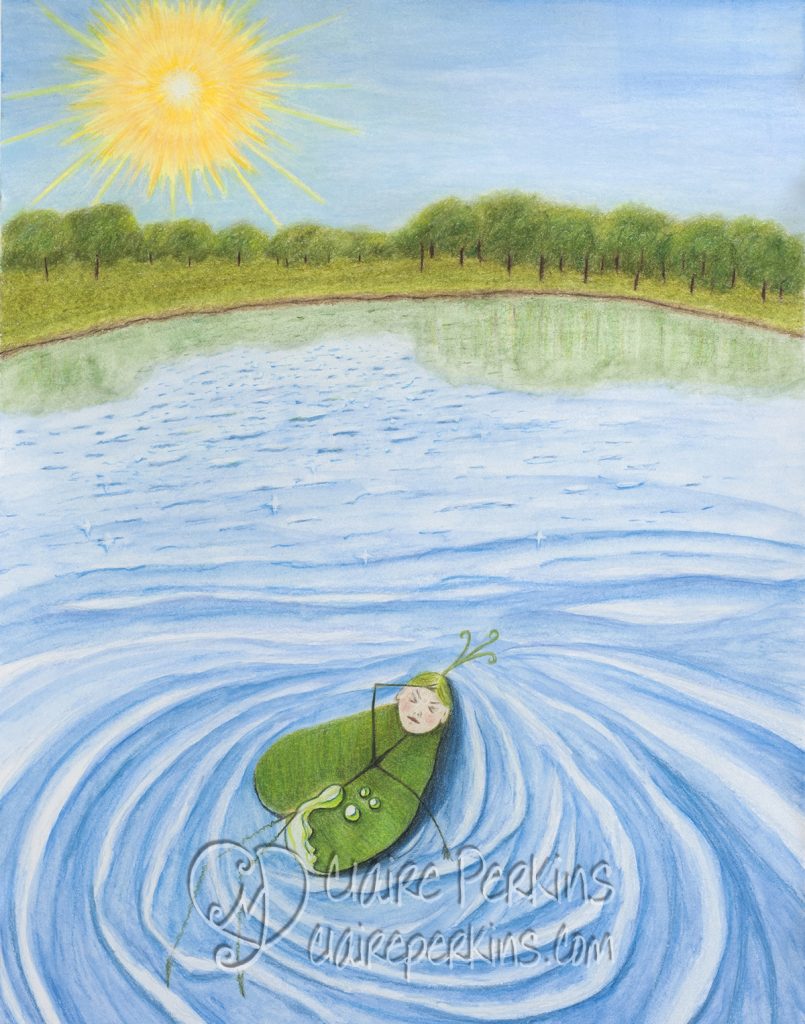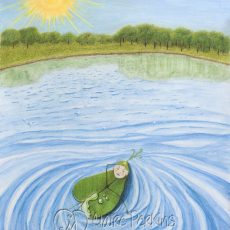 So, I have published two books now and they both have “Deep Water Leaf” in the title.
So, I have published two books now and they both have “Deep Water Leaf” in the title.
Wait. Deep Water What?
What in the world is a “deep water leaf”?
That’s exactly what I set out to answer in my newest book, Fallen – The Adventures of a Deep Water Leaf.
Believe me, the answer has been years in coming – decades even.
It began with a dream I had in 1997 (20 years ago! how can that be?).
In my dream, my four month old baby has died. I am distraught, inconsolable, raw with grief. At the memorial service for the child, a gift of a spiritual insight is given to me, planted like a seed in my mind. “You will create the Deep Water Leaf Society, and by doing so you will heal your pain and the pain of many others.” Somehow, that simple message gives me peace within the dream.
But I awakened in the morning feeling deeply disturbed, with tears streaming down my face. I didn’t know what the death of this four month old dream baby might represent. None of my own children were still babies. But my oldest child, 19 at the time, was born in April, the fourth month of the year. And he was the kind of kid I worried about constantly. I hoped the dream wasn’t some kind of omen.
Seven years later, in 2004, my son, my fourth month baby, died at age 26.
Working through my grief, the dream came back to me. And that phrase, “deep water leaf”. I had been told in the dream it was the key to healing. But what did it mean, exactly? Over the course of the two years following my son’s death, I experienced the most amazing journey of healing and awakening – filled with experiences that opened me to greater dimensions than this 4D world of time and space. This journey is chronicled in my first book, The Deep Water Leaf Society. I named it that because the story it told was of my own healing and awakening – and I hoped it might help others to heal as well. Others in that society of those who’ve known deep grief. It seemed like that was what the long ago dream had been talking about.
And yet.
It still didn’t explain the meaning of the phrase, “deep water leaf”. And that question stayed with me over the years. What exactly is a deep water leaf?

Slowly, like a slow growing tree, a fairy tale began to unfold in my mind. The story of a little leaf that falls from a big, big tree into a watery world she does not understand. And her answers are not to be found on the surface, but only in The Deep.
For a long time, the basic premise raised more questions than it answered. Little glimmers sifted through my brain like sunlight through the leaves of a tree. Animal characters appeared in my dreams and in my journaling. Little tidbits of insight, but nothing coherent. And then, suddenly, over the course of a weekend writing retreat, it all came together. The arc of the story line, the main players, a clear beginning, middle and end. It was a bare bones story, but it was complete. And it was “downloaded” more than written by me.
Over the course of the following year, I fleshed out the characters, filled in the gaps in the story line, revised and edited. Oh, and I learned how to draw so I could illustrate the story.
So what is a “deep water leaf”? It’s someone who’s learned to dive deep and dream true. Someone who has awakened and remembered who they really are.
And how does someone become a “deep water leaf”?
No spoilers here. You’ll have to read the story to find out.



